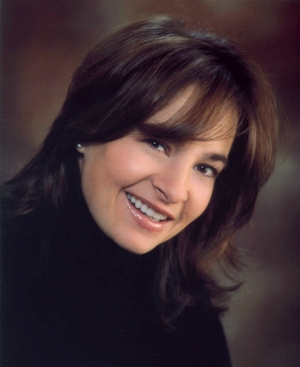 Karra M. Barber is a full-time mother and advocate for her teenage son who has Asperger’s Syndrome. She is the founder and facilitator of a well-established support group for parents of children and teens on the autism spectrum, and is a regular contributor to many autism magazines.
Karra M. Barber is a full-time mother and advocate for her teenage son who has Asperger’s Syndrome. She is the founder and facilitator of a well-established support group for parents of children and teens on the autism spectrum, and is a regular contributor to many autism magazines.
Here, she answers a few questions about
The Social and Life Skills MeNu, her new skill-building workbook for teens on the autism spectrum.
Tell us about your advocacy role, and how the book came about?
My experience advocating stems largely from having to personally interact with the school district on behalf of my son, Thomas. He was in Kindergarten when it became clear to me that he would require accommodations and additional services in school. Since then, like many parents with special needs children, it became my mission for Thomas to receive the support and understanding from educators and professions necessary for him to learn and thrive in an educational setting.
The book really started out as “lesson plans” for my son. Each task was developed toward achieving a specific social and/or life skills goal. Thomas works with a life coach who helps him to implement these specific MeNu tasks. There wasn’t a specific situation that inspired me, only the realization that one day I will be gone and I wanted my son to be as self sufficient and independent as possible.
How did you come up with the strategies and menu theme in the book?
My son is seventeen and is approaching the age of maturity. In an effort to prepare him toward an independent lifestyle (his goal as well), I knew we needed to build his life and community skills. I wanted him to feel confident in everyday tasks such as buying food, returning an item at the store, going to the bank, washing clothes, using public transportation or making himself a meal. And although these tasks are practiced regularly, they are definitely a work in progress. With that said, I knew others with similar social and life skill difficulties could benefit from the MeNu skill building strategies as well.
Because engaging socially can be so difficult, even overwhelming, for students on the spectrum, I came up with the MeNu (a play on words Me and You) as a reminder to focus only on the person you are communicating with. Further, the MeNu used as a template will guide students along their conversations, alleviating anxiety about how the conversation should go (e.g. when to start, stop, pause, add, etc.). I developed this concept for my son, Thomas and it has worked well.
What are the most difficult social situations for teenagers on the autism spectrum to deal with?
I think attempting to navigate social situations in general, and how to respond appropriately and effectively is extremely difficult task for our kids to manage. Something as simple as how to approach someone with a question, or how to enter into an existing conversation can be overwhelming. I hope the Social and Life Skills MeNu will provide a road map for ASD students to practice and follow, while building confidence in how they engage with others.
My son uses the MeNu concept in conversations with me now. It’s an interesting development. Because the book was developed for my son initially, he’s learned to use the strategies in the book quite well and finds them to be useful. Because his goal is to live independently one day, he’s motivated to learn and practice strategies that will help him facilitate that goal.
Copyright © Jessica Kingsley Publishers 2011.
I think is sounds like a fascinating concept and I can’t wait to get the book and learn more about it. l have read some of the excerpts and think the book will be incredibly helpful to teens on the autism spectrum. I will most definitely share this book and recommend it to all.